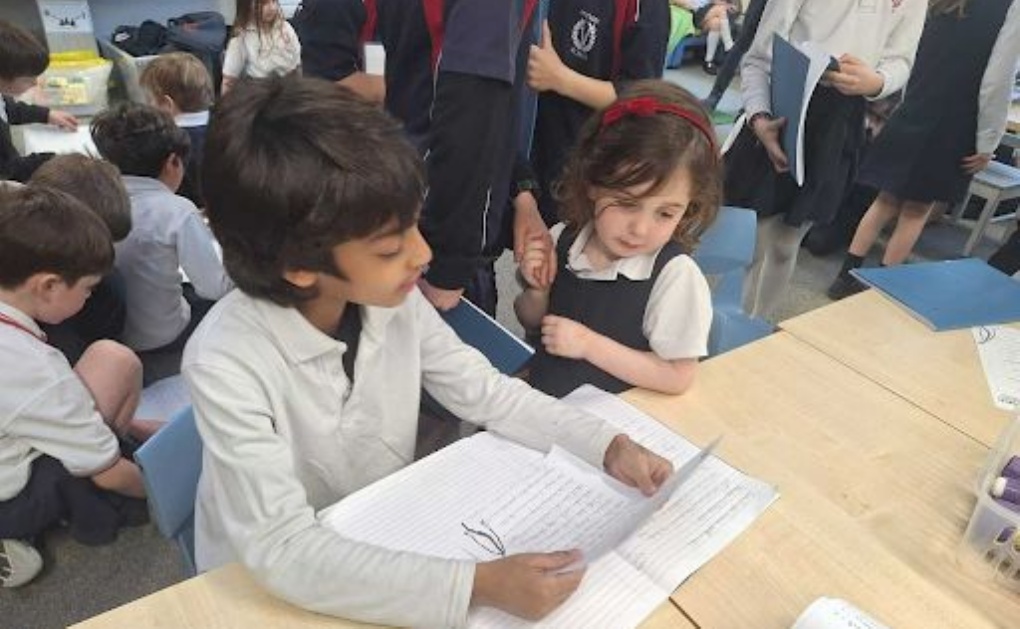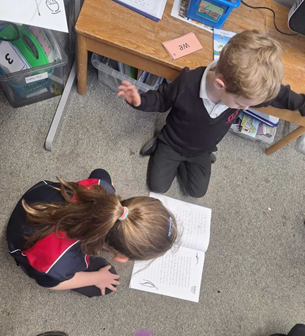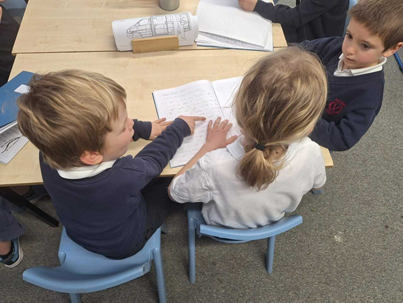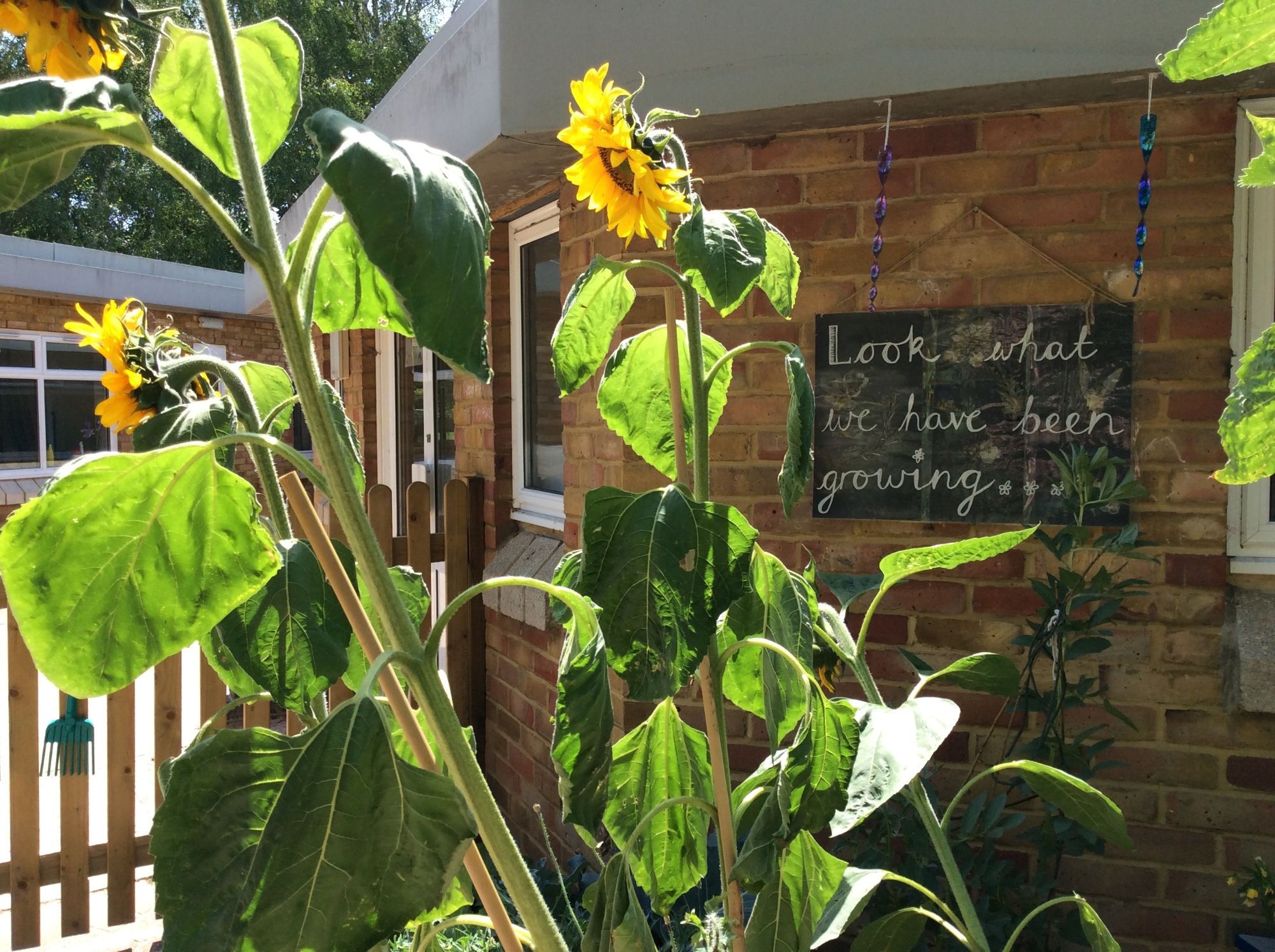LKS2 News

Read on to find out what we have been up to in Years 3 & 4 this week.
Year 3
There have been some wonderful descriptions of George’s Grandma in English. The children are developing more complex sentences in their writing and are gaining a better understanding of how commas are used to separate phrases as well as lists. For example: “Grandma sits in her chair while she scratches her chin, creases her beady eyes, and points her bony finger at George.” Everyone was proud to show off these skills when we visited the Reception classes to warn them about this particular “bitter, angry, and mean ancient lady.”
In maths, we’ve focused on mass, exploring the difference between grams and kilograms. We’ve also noticed that not all weighing scales are the same, so we’ve had to calculate the value of the smaller lines.
In science, we conducted more experiments, building on knowledge from Year 1. We explored how a lack of sunlight, water, air, and the correct temperature can impact plant growth. Did you know what makes a living thing a plant and not an animal? It’s the same reason plants need sunlight—it’s related to photosynthesis. We also enjoyed acting out the role of pollinators in the life cycle of plants.
We’ve gained a greater understanding of life on a Tudor ship this week, and we’ve started looking into the Spanish Armada—specifically, why the Spanish were unsuccessful. For once, the UK weather was very helpful in setting the scene!
In PSHE, we discussed how different foods provide us with varying amounts of energy. It’s important to give ourselves different amounts of fuel at different stages of life, and we focused on maximizing the benefits of vitamins, protein, and calcium. Next week, we’ll be learning about liquids, foods, medicines, and other substances that are not suitable for everyone to consume, and what to do if we encounter them.


This week: 17.03.25
Spelling rule: ending ‘gue’ and ‘que’ eg. rogue and unique
Key words:
Maths: mass, scale, volume,capacity, grams, kilograms,
English: commas, adjectives, conjunctions, apostrophes, contractions
Science: Pollen transportation, pollination, fertilisation, seed dispersal, stamen, seed formation
History: Tudors, transport, explorer
Maths facts: 4 x tables
Next week: 24.03.25
Spelling rule: /sh/ sound spelt ‘ch’ eg. machine and chef
Key words:
Maths: fractions, numerator, denominator, vinculum, non/unit fractions, mass, scale, volume,capacity, grams, kilograms, millilitres, litres
English: commas, adjectives, conjunctions, apostrophes, prepositions
Science: transportation, pollination, fertilisation, seed dispersal, stamen
History: Tudors, pirates, battle
Maths facts: 4 x tables
Key dates:
25th March - Music Day (see sheet sent home with children on Wednesday)
4th April - End of term. School closes at 1.30pm
Year 4
It was a delight to read the children’s descriptions of the Iron Man and to see how hard they worked at incorporating the literary techniques we have been learning this year.
A key focus for Year 4 is vocabulary, and we would encourage you to practice the Year 3 and 4 spelling words at home with your child/children. We will also be practicing these words in school and encouraging the children to use them in their writing.
Building on their learning from Year 3, the children have been adding and subtracting mixed numbers and improper fractions, and representing their strategies in different ways. We will be moving on to decimals next.
In PE this half term, the children are developing their skills in outdoor adventurous activities. This week, we focused on map symbols and keys. We are looking forward to the trip on the last morning of term to Marble Hill Park, where Year 4 will practise working at height. If you would like to volunteer for the trip, please let the office know. The last swimming lesson will be on Friday, 28th April.
In Science, the children have been investigating how to change the volume and pitch of sound and how this affects the sound wave produced. In RE, attention has turned to Islam, exploring what activities Muslims are required to do, can do, and cannot do during Ramadan.
Resources are beginning to come into school to help the children design their mini-greenhouses. Large plastic bottles or plastic cups with domed lids are ideal. The children will be making their greenhouses and planting seeds during the week of 24th March, so please ensure all resources are in school by then.
Finally, looking ahead to our next history topic, the children thoroughly enjoyed an Anglo-Saxon day on Thursday, finishing the day with an Anglo-Saxon burial.

This week: 17.03.25
Spelling rule - Word families based on common words, showing how words are
related in form and meaning:
phone
phonics
microphone
telephone
homophone
real
reality
realistic
unreal
realisation
Key words:
Maths: decimals, tenths as fractions and as decimals, divide by 10
English: expanded noun phrases, relative clauses
Science: volume and pitch, soundwaves, vibrations, musical instruments
History: comparison, developments
Maths facts: Times tables (1-12)
Next week: 24.03.25
Spelling rule - Word families based on common words, showing how words are
related in form and meaning:
solve
solution
insoluble
dissolve
solvent
sign
signature
assign
design
signal
Key words:
Maths: decimals, hundreds as fractions and as decimals, divided by 100
English: figurative language, alliteration, similes and metaphors
Science: insulation, reflect, absorb
History: artefacts, lifestyle, archaeologist
Maths facts: Times tables (1-12)
Key dates:
Friday 4th April am - Marble Hill Park trip
Friday 4th April - school closes at 1.30pm
Tuesday 29th April - Onyx class assembly
Wednesday 30th April - Zircon class assembly
Thursday 1st May - Carnelian class assembly


